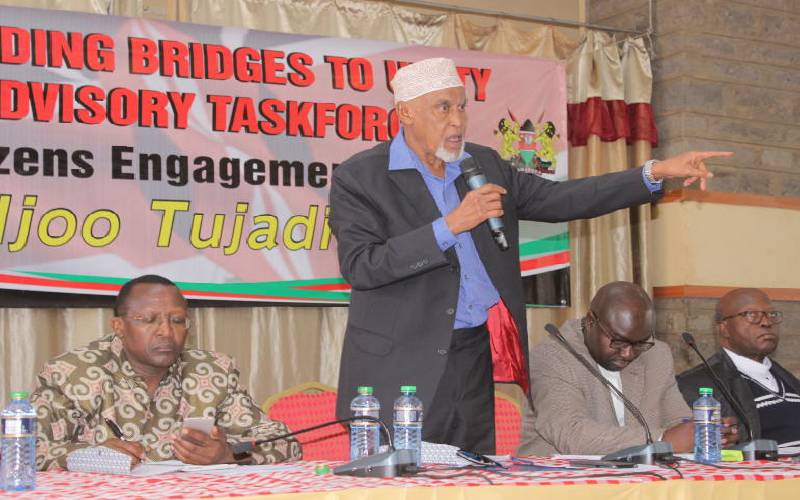×
The Standard e-Paper
Home To Bold Columnists

The Building Bridges Initiative (BBI) team yesterday went on a retreat to prepare a report that it will present to President Uhuru Kenyatta.
The team that was constituted after the March 9, 2018 handshake between Uhuru and opposition chief Raila Odinga, has promised recommendations that will foster unity.